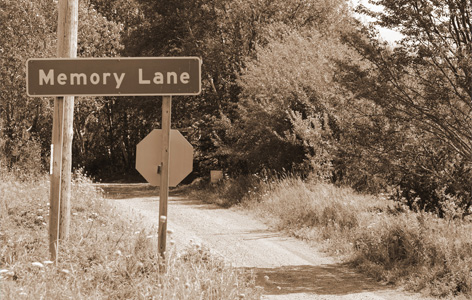Home page Description:
Researchers identify brain regions that contribute to how vividly we relive past life events.
Posted On: February 06, 2017

Image Caption:
The hippocampus is a region of the human brain that is intimately involved in learning and memory as well as navigation.
Our memories are what shape us. When we retrieve the memory for an event in our past, called an autobiographical memory, there can be a lot of perceptual detail—such as sights, sounds, smells and tastes—making them more vivid and life-like. And it is believed that this perceptual “richness” can help us to recall memories. How our brains create, store and retrieve these complex memories remains unknown.
Researchers have gained some insight into the process by studying patients affected by medial temporal lobe (MTL) epilepsy, a neurological condition that damages the MTL region of the brain. This damage impairs the recollection of autobiographical memories and diminishes their perceptual richness, suggesting that the MTL contributes to the retrieval of perceptually rich memories.
Recently, a team led by Krembil Postdoctoral Fellow Dr. Marie St-Laurent used functional magnetic resonance imaging (fMRI), an imaging technique that can be used to measure regional brain activity during certain tasks, to examine the link between brain function and the perceptual richness of memories. This work was performed under the supervision of Krembil Senior Scientist Dr. Mary Pat McAndrews.
Healthy participants and people with MTL epilepsy were asked to recall perceptually rich memories (ie, audio-visual film clips or autobiographical memories) and memories lacking perceptual content (ie, written narratives), while undergoing an fMRI scan. In the group of healthy adults, several brain regions, including the right hippocampus within the MTL, were more active when they retrieved perceptually rich memories. And this right hippocampal activation corresponded with their ability to retrieve perceptual details. In contrast, patients with MTL epilepsy and right hippocampus damage experienced less activation in these brain regions and were impaired at remembering perceptual details.
These findings suggest that the hippocampus plays an important role in determining how vividly we relive past life events.
This work was supported by the James S. McDonnell Foundation, the Canadian Institutes of Health Research, the Savoy Epilepsy Foundation, the Natural Sciences and Engineering Research Council of Canada and the Toronto General & Western Hospital Foundation.
St-Laurent M, Moscovitch M, McAndrews MP. The retrieval of perceptual memory details depends on right hippocampal integrity and activation. Cortex. 2016 Nov. doi:10.1016/j.cortex.2016.08.010.
Researchers have gained some insight into the process by studying patients affected by medial temporal lobe (MTL) epilepsy, a neurological condition that damages the MTL region of the brain. This damage impairs the recollection of autobiographical memories and diminishes their perceptual richness, suggesting that the MTL contributes to the retrieval of perceptually rich memories.
Recently, a team led by Krembil Postdoctoral Fellow Dr. Marie St-Laurent used functional magnetic resonance imaging (fMRI), an imaging technique that can be used to measure regional brain activity during certain tasks, to examine the link between brain function and the perceptual richness of memories. This work was performed under the supervision of Krembil Senior Scientist Dr. Mary Pat McAndrews.
Healthy participants and people with MTL epilepsy were asked to recall perceptually rich memories (ie, audio-visual film clips or autobiographical memories) and memories lacking perceptual content (ie, written narratives), while undergoing an fMRI scan. In the group of healthy adults, several brain regions, including the right hippocampus within the MTL, were more active when they retrieved perceptually rich memories. And this right hippocampal activation corresponded with their ability to retrieve perceptual details. In contrast, patients with MTL epilepsy and right hippocampus damage experienced less activation in these brain regions and were impaired at remembering perceptual details.
These findings suggest that the hippocampus plays an important role in determining how vividly we relive past life events.
This work was supported by the James S. McDonnell Foundation, the Canadian Institutes of Health Research, the Savoy Epilepsy Foundation, the Natural Sciences and Engineering Research Council of Canada and the Toronto General & Western Hospital Foundation.
St-Laurent M, Moscovitch M, McAndrews MP. The retrieval of perceptual memory details depends on right hippocampal integrity and activation. Cortex. 2016 Nov. doi:10.1016/j.cortex.2016.08.010.




